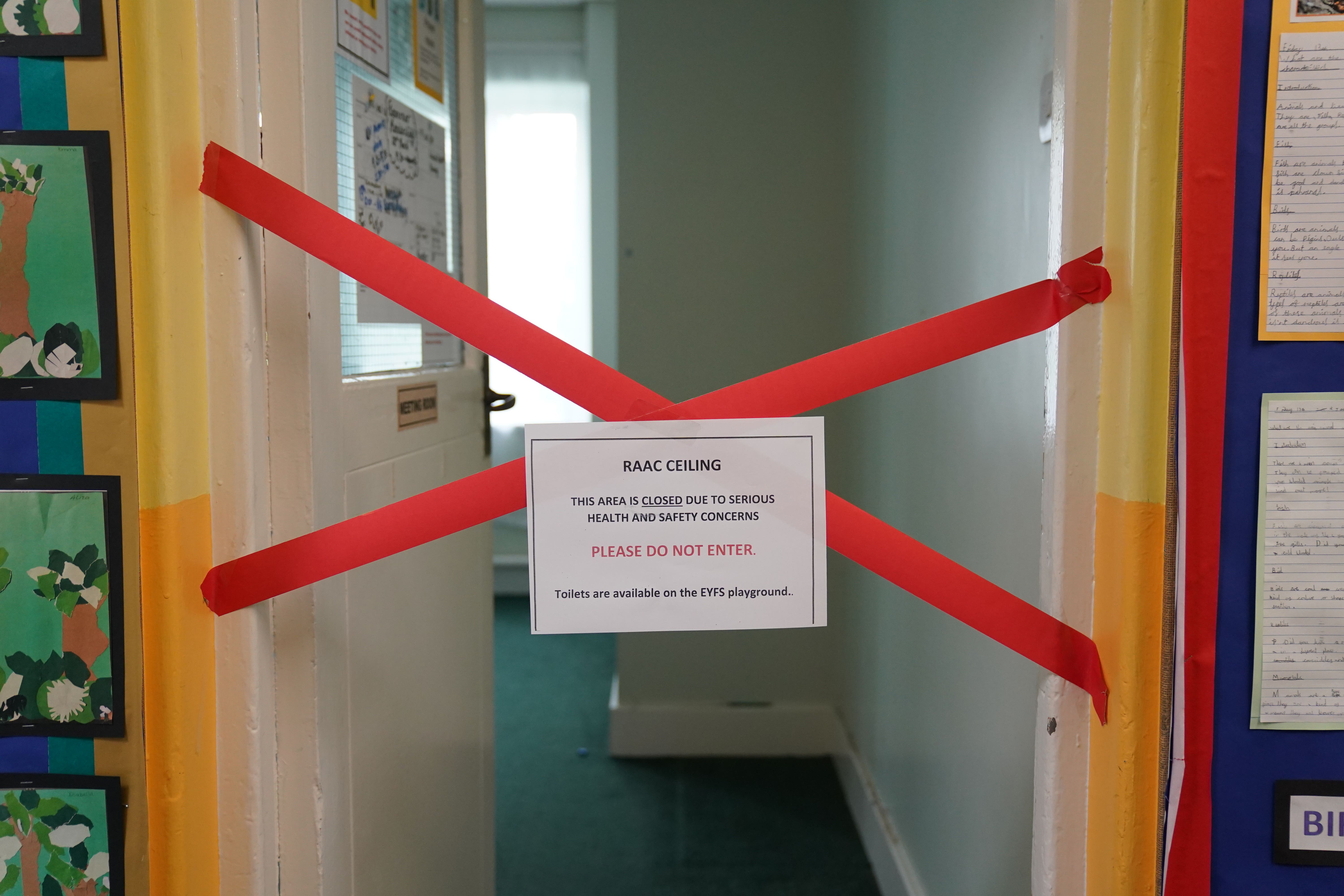Government to publish update on list of schools affected by crumbling concrete
MPs will also question ministers and Department for Education officials about the reinforced autoclaved aerated concrete crisis.

Your support helps us to tell the story
From reproductive rights to climate change to Big Tech, The Independent is on the ground when the story is developing. Whether it's investigating the financials of Elon Musk's pro-Trump PAC or producing our latest documentary, 'The A Word', which shines a light on the American women fighting for reproductive rights, we know how important it is to parse out the facts from the messaging.
At such a critical moment in US history, we need reporters on the ground. Your donation allows us to keep sending journalists to speak to both sides of the story.
The Independent is trusted by Americans across the entire political spectrum. And unlike many other quality news outlets, we choose not to lock Americans out of our reporting and analysis with paywalls. We believe quality journalism should be available to everyone, paid for by those who can afford it.
Your support makes all the difference.An updated list of schools in England affected by collapse-prone concrete is to be released on Tuesday.
MPs will also question the Department for Education (DfE) about its response, which saw scores of schools told to fully or partly close just days before the start of the autumn term.
An initial list published showed that, as of August 30, 147 schools and colleges in England were identified as having reinforced autoclaved aerated concrete (Raac) on site.
Four schools have had to switch to remote learning for all students, rather than face-to-face lessons, because of the concrete crisis.
An additional 20 schools had to offer some remote learning to pupils at the start of the academic year as Raac was present in their buildings.
Hundreds of surveys have been carried out in schools across England to determine the extent of the problems caused by the building material.
School system minister Baroness Barran and the DfE’s top official, permanent secretary Susan Acland-Hood, will be questioned by the cross-party Education Select Committee about the situation.
Education Committee chairman Robin Walker said: “Both I and my cross-party colleagues have heard loudly and clearly the distress and anxiety that this crisis is causing to families and staff at the 100 or more schools that are affected by Raac.
“We share the feeling of urgency to establish how this situation developed, how and when it can be resolved, and what lessons need to be learnt.
“We look forward to questioning the minister and officials with oversight of capital expenditure on education settings, and testing the Government on its answers to those vital questions.”